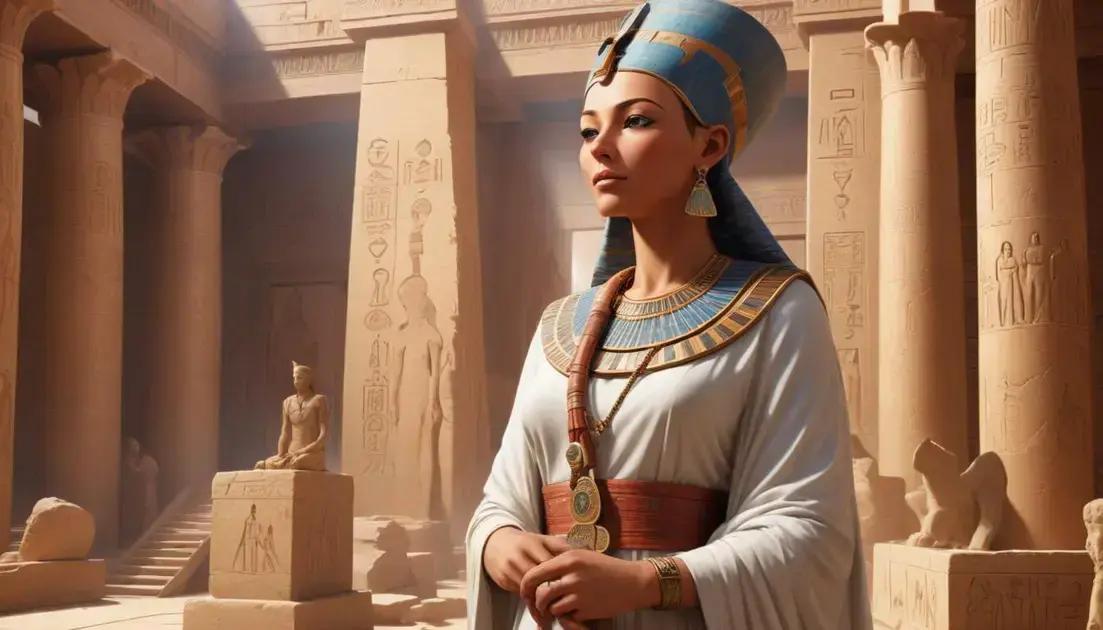
Church of Alexandria: Theological School and African Authority
The Church of Alexandria played a crucial role in early Christianity, influencing theological discussions and education. Founded by Mark the Evangelist, it became a center for learning, drawing scholars from various regions. Key figures like Origen and Athanasius contributed to its legacy, shaping modern Christian thought. The church’s cultural impact is evident in art, literature, and spiritual practices that blended local customs with Christian traditions. Today, the legacy of the Church of Alexandria continues to inspire exploration of faith and the importance of education in understanding spirituality.
The Church of Alexandria stands as a beacon of theological scholarship and African authority in early Christianity. What made this institution so pivotal?
Origins and Founding
The origins of the Church of Alexandria trace back to its founding by Mark the Evangelist around the first century. Mark was not just a follower; he played a major role in establishing Christianity in Egypt. Following his work, the church quickly became a hub of activity.
Growth and Influence
As the church grew, it became a center for theological discussions. Scholars and leaders gathered to debate and share ideas. This atmosphere of learning attracted many people, eager for knowledge and faith.
Key Figures in Its Formation
In its early days, the church saw influential figures like Origen and Clement of Alexandria. They contributed significantly to the theological depth and the education of future leaders. Their teachings emphasized a blend of faith and reason.
Transition to a Major See
Over time, the Church of Alexandria was recognized as one of the major episcopal sees. It meant that it held considerable authority and influence within the Christian community. This status helped it spread its teachings widely.
The church’s founding story is not just about a single individual. It includes the dedication and efforts of many who believed in its mission. Their commitment laid the groundwork for what would become a brilliant tradition in Christian thought.
Theological Influence
The Theological Influence of the Church of Alexandria is profound. It shaped early Christian thought. Many key ideas emerged here, blending faith and philosophy. Scholars dove deep into discussions about God, humanity, and salvation.
Key Thinkers and Their Ideas
One major figure is Origen. He was known for his teachings that emphasized understanding the Bible. Origen believed the scriptures had layers of meaning. This idea encouraged many to explore their faith more deeply.
The Role of Education
The church became a center for education. It drew students from all over. These students learned theology and philosophy. They would return to their own communities, spreading new ideas.
Impact on Church Doctrine
The influences here helped form many church doctrines. These doctrines ruled discussions about the nature of Christ and the Trinity. Debates and teachings from Alexandria shaped the beliefs that many followed.
As the church grew, its influence reached beyond Egypt. Ideas spread throughout the Mediterranean. The works of Alexandrian scholars became essential reading for generations.
Key Figures
The Church of Alexandria is known for its remarkable Key Figures who shaped its legacy. These individuals played vital roles in theological discussions and education. They contributed significantly to early Christianity.
Origen: The Theologian
One of the most notable figures is Origen. He was a theologian and scholar. Origen wrote extensively and developed complex ideas. His work emphasized the importance of understanding scripture deeply.
Clement of Alexandria
Clement was another influential leader. He focused on merging faith with philosophy. His teachings encouraged questioning and seeking knowledge. He believed faith should be reasonable and informed.
Athanasius: The Defender
Athanasius was crucial in defending the core beliefs of Christianity. He faced challenges and controversies that tested his faith. His defense of the nature of Christ is still recognized today.
These key figures helped build a strong foundation for the church. They influenced future generations of Christians. Their teachings are still studied and valued widely.
Cultural Impact
The Cultural Impact of the Church of Alexandria extends far beyond theology. It helped shape the society around it in many ways. The church became a center for learning and cultural exchange.
Education and Learning
Many came to Alexandria to study. The church attracted scholars from various backgrounds. They shared ideas and knowledge, which enriched the local culture. Education was not only religious but also included philosophy and science.
Art and Literature
The church influenced art and literature significantly. Many works of art were inspired by religious themes. Writers found inspiration in the church’s teachings and stories. This blending of faith and creativity produced lasting works.
Spiritual Practices
Unique spiritual practices developed within the church. These practices often blended local customs with Christian traditions. This blend created a vibrant cultural identity for Alexandria.
The lasting effects of the church’s cultural influence can still be seen today. Its commitment to education and art helped shape the history of Christianity.
Modern Legacy
The Modern Legacy of the Church of Alexandria continues to influence today. Its teachings and ideas have shaped various Christian denominations. The church’s commitment to education and inquiry set a strong foundation.
Continuing Influence in Theology
Many modern theologians still reference Alexandrian scholars. Their ideas about interpreting the Bible are often revisited. This shows how their thoughts remain relevant in discussions about faith.
Impact on Christianity Today
The church’s impact can be seen in many denominations. Its approach to blending reason and faith is part of modern Christian thought. This balance is essential for many believers today.
Preservation of Knowledge
Alexandria was known for preserving important texts. This tradition of valuing knowledge continues now. Many libraries and institutions aim to protect ancient texts and teachings.
The legacy of Alexandria is a reminder of the importance of learning and dialogue. It encourages ongoing exploration of faith and understanding across cultures.
Conclusion
In conclusion, the Church of Alexandria has left a lasting mark on history and culture. Its contributions to theology and education continue to influence modern Christianity. The key figures and their teachings have shaped beliefs and practices for generations.
Today, we see the impact of its cultural legacy in the way many people understand faith. The blending of reason and belief promotes a thoughtful approach to spirituality. As we remember Alexandria, we honor the spirit of inquiry and learning that it represents.
Overall, the legacy of the Church of Alexandria encourages us to explore our faith. By valuing education and open dialogue, we can all draw inspiration from its rich history.


